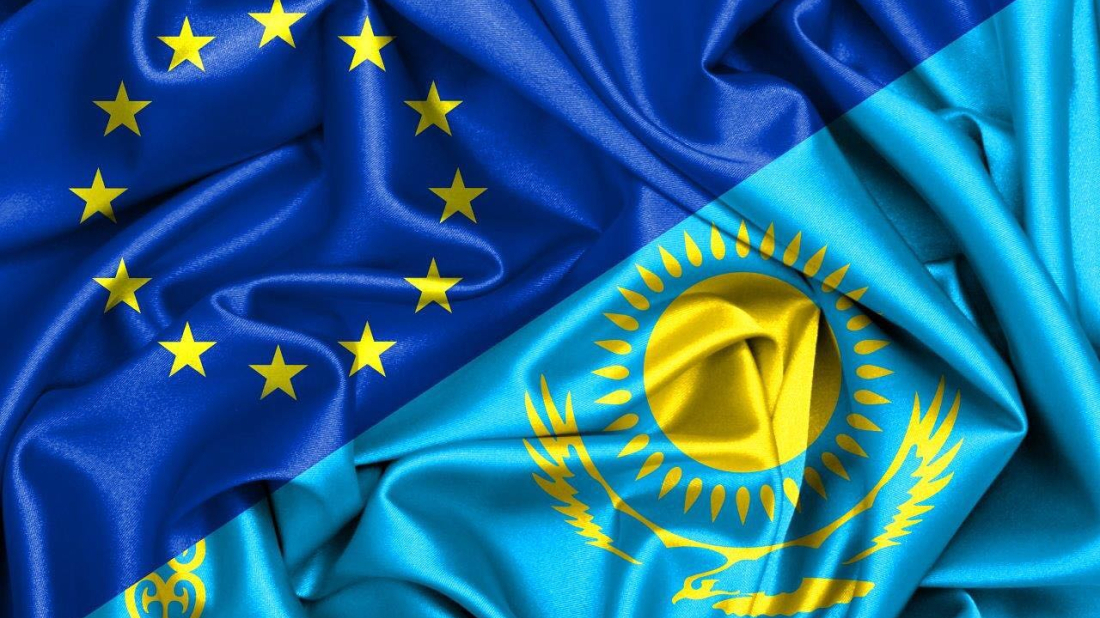Canadian PM Carney speaks with Trump to resolve Ontario–Michigan bridge dispute
Canadian Prime Minister Mark Carney said a bridge project linking Canada’s Ontario province with the U.S. state of Michigan would contribute to coop...

Kazakhstan and the European Union are bolstering their economic partnership, with a recent high-level meeting paving the way for expanded collaboration in trade, investment, and sustainable development.
A Kazakhstan-EU Cooperation Committee meeting held in Astana, reaffirmed the EU's position as Kazakhstan's foremost economic ally and set the stage for deeper integration on green initiatives.
The EU remains the largest single market for Kazakhstan's exports and a primary source of foreign investment. In 2024, the trade turnover between the two partners reached nearly $50 billion. More recent reports from April 2025 have indicated this figure could be as high as $49.7 billion, with Kazakh exports to the EU accounting for approximately $38.6 billion of that total. This robust trade relationship is further underscored by the immense flow of capital, with the EU having invested over $200 billion into the Kazakh economy since 2005. The footprint of European business in the Central Asian nation is substantial, with over 3,000 companies with European capital, including industry giants like Shell, Total, and Airbus, actively operating in the country.
A key focus of the ongoing dialogue is the comprehensive implementation of the Enhanced Partnership and Cooperation Agreement (EPCA). A recent visit by a delegation from the Council of the European Union's Working Party on Eastern Europe and Central Asia (COEST) in early June 2025 emphasized the practical steps being taken to realize the full potential of this agreement. Discussions are centered on enhancing technical regulations, streamlining digital trade, and significantly boosting the export of non-resource goods from Kazakhstan. The nation's e-commerce market is already showing significant promise, having surpassed 3.2 trillion tenge (approximately $6.3 billion).
A cornerstone of the evolving partnership is the joint commitment to a green transition. Both sides have agreed to intensify their collaboration on the implementation of the European Green Deal's principles. This includes strengthening cooperation in standardization, accreditation, and the adoption of Environmental, Social, and Governance (ESG) best practices. In April 2025, a partnership roadmap for 2025-2026 was endorsed, specifically targeting strategic cooperation in the fields of critical raw materials, batteries, and renewable hydrogen. This aligns with the EU's broader "Global Gateway" strategy, which aims to mobilize significant investment in sustainable infrastructure and energy projects across Central Asia. As part of this, a €12 billion investment package has been announced for the region, signaling a strong European commitment to fostering a green and resilient economy in partnership with nations like Kazakhstan.
JD Vance arrived in Armenia on Monday (9 February), becoming the first sitting U.S. Vice President to visit the country, as Yerevan and Washington agreed to cooperate in the civil nuclear sector in a bid to deepen engagement in the South Caucasus.
António José Seguro’s decisive victory over far-right challenger André Ventura marks an historic moment in Portuguese politics, but analysts caution that the result does not amount to a rejection of populism.
J.D. Vance met Azerbaijan's president Ilham Aliyev in Baku on a rare visit by a sitting U.S. vice president, signalling a renewed push to deepen cooperation with Azerbaijan on energy, security and regional stability.
Buckingham Palace said it is ready to support any police investigation into allegations that Prince Andrew shared confidential British trade documents with late sex offender Jeffrey Epstein, as King Charles expressed “profound concern” over the latest revelations.
Iran’s atomic energy chief says Tehran could dilute uranium enriched to 60 per cent if all international sanctions are lifted, stressing that technical nuclear issues are being discussed alongside political matters in ongoing negotiations.
J.D. Vance met Azerbaijan's president Ilham Aliyev in Baku on a rare visit by a sitting U.S. vice president, signalling a renewed push to deepen cooperation with Azerbaijan on energy, security and regional stability.
A scheduled visit to Ankara this week by Greek Prime Minister Kyriakos Mitsotakis will seek to “resolve all our problems at the table,” Ömer Çelik, a spokesman for Türkiye’s ruling AK Party, has said.
The European Union is preparing a further expansion of its sanctions against Russia, with Central Asia emerging for the first time as a distinct point of focus.
Azerbaijan and the United States signalled closer economic ties on Monday (9 February) as President Ilham Aliyev hosted a delegation from the U.S. Chamber of Commerce, highlighting the country’s investment appeal and growing interest from American companies.
“Peace is not just about signing treaties - it’s about communication, interaction and integration,” Sultan Zahidov, leading adviser at the AIR Center, told AnewZ, suggesting U.S. Vice President JD Vance's visit to the South Caucasus could advance the peace agenda between Azerbaijan and Armenia.
You can download the AnewZ application from Play Store and the App Store.

What is your opinion on this topic?
Leave the first comment